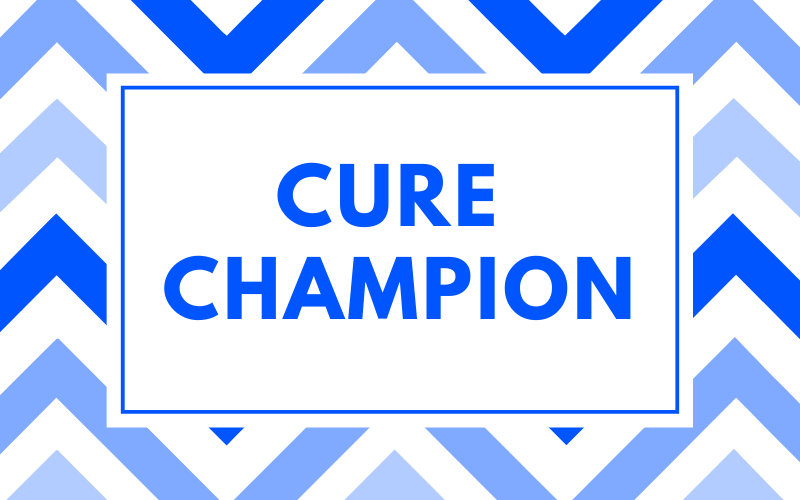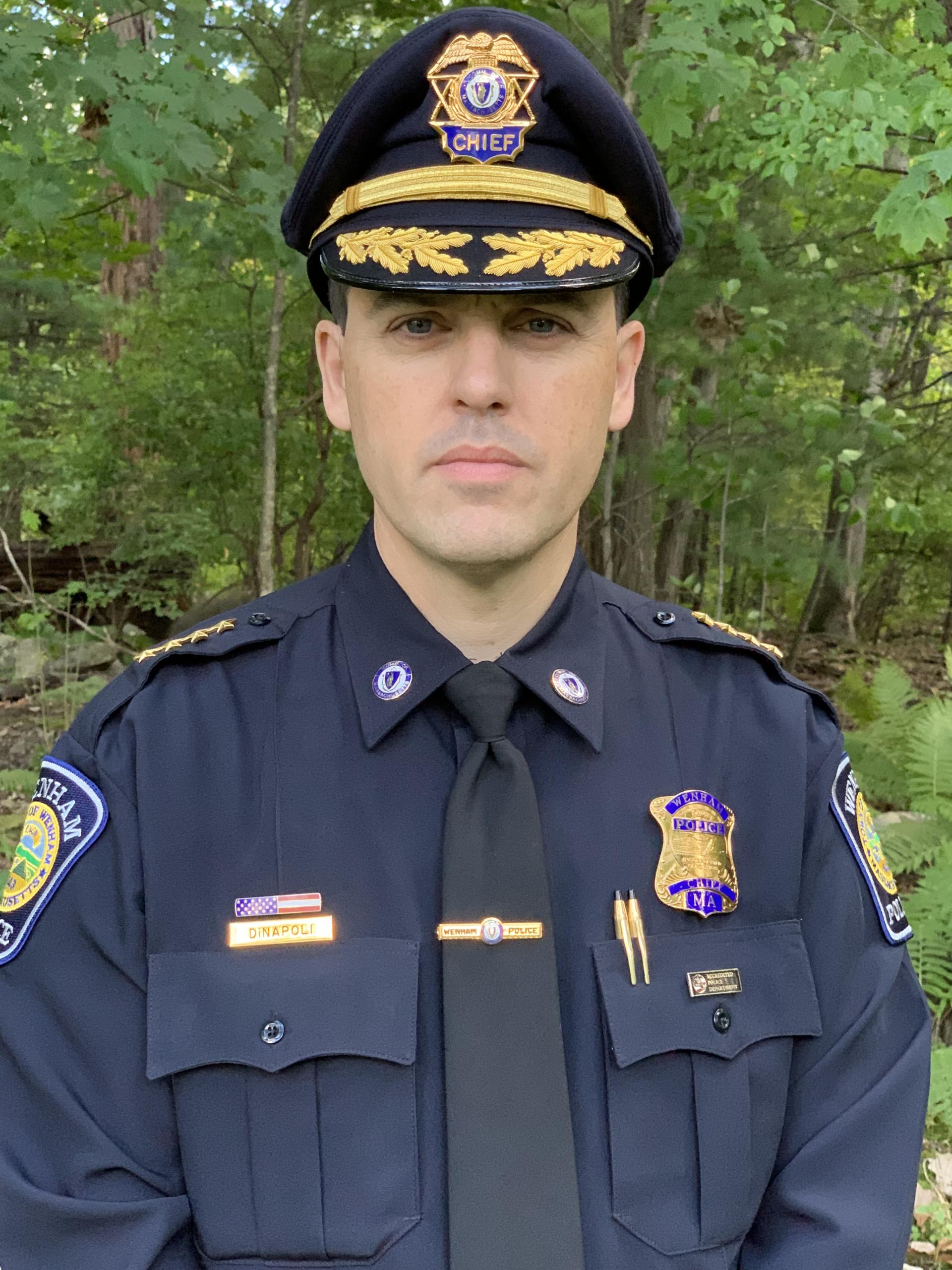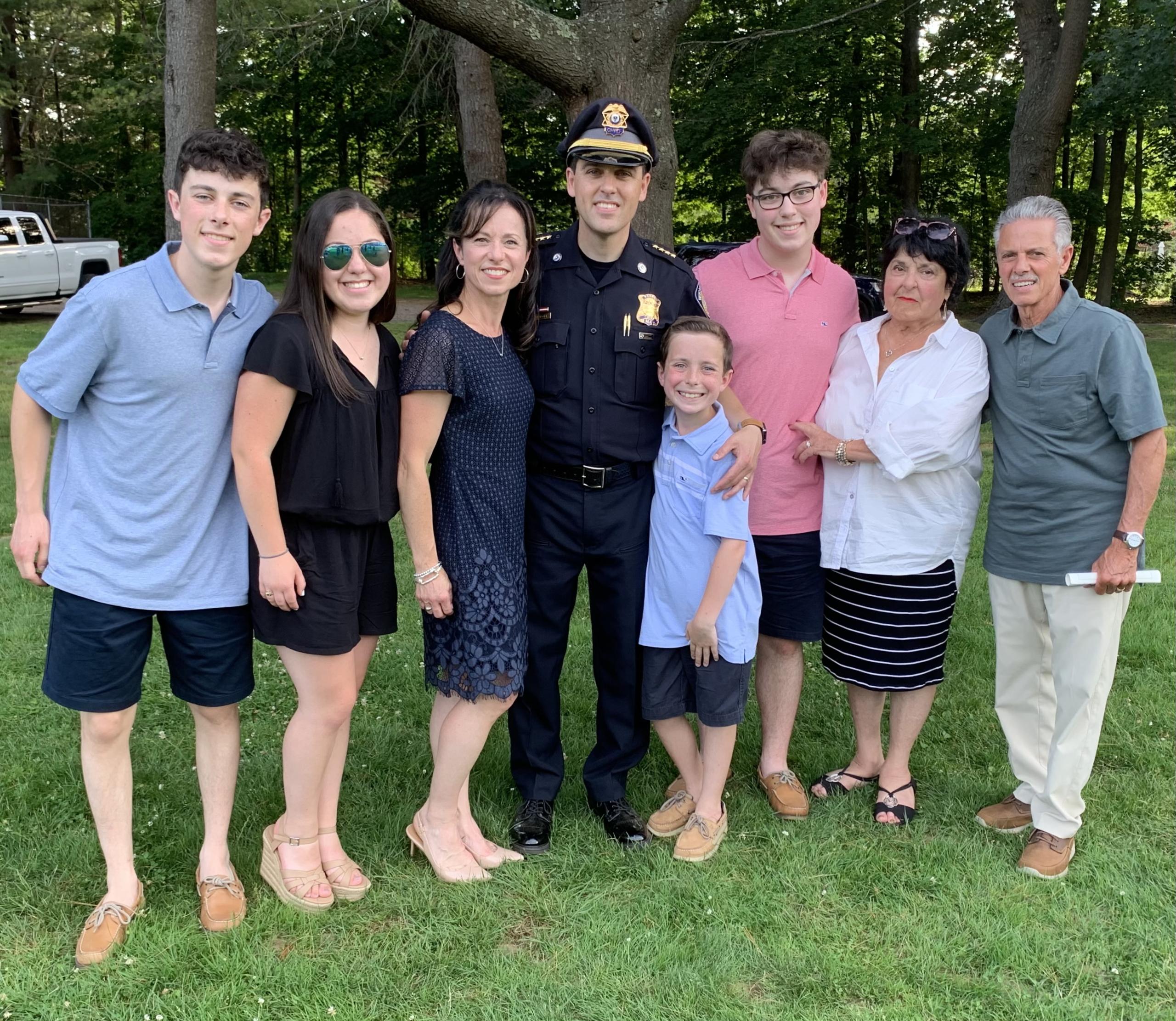December Cure Champion

 I was in line at Dunkin Donuts this week when I saw a middle-aged woman with a wire coming out of her pocket. I could immediately tell it was part of her insulin pump so I was obviously tripping over myself to speak with her. I asked “what pump are you on?” and her eyes lit up as she said “are you type 1?” Only those with type 1 diabetes (T1D) can understand the instant connection that exists when you meet someone else who is fighting the same fight.
I was in line at Dunkin Donuts this week when I saw a middle-aged woman with a wire coming out of her pocket. I could immediately tell it was part of her insulin pump so I was obviously tripping over myself to speak with her. I asked “what pump are you on?” and her eyes lit up as she said “are you type 1?” Only those with type 1 diabetes (T1D) can understand the instant connection that exists when you meet someone else who is fighting the same fight.
My story is a little different than the average diagnosis. I was 30-years-old with two young children. I had been married for five years to my incredible wife Karen (who thank God happens to be a nurse). I had also been working as a full-time police officer for seven years when the on-set of my symptoms began. The chronic fatigue and thirst prompted me to pursue medical tests which confirmed my diagnosis.
Although autoimmune diseases run in my family, T1D was not one of them. The immediate fears and questions consumed me for the next few months. I immediately questioned my ability to be part of my family’s (now four kids) future, professional goals and diet restrictions. Could I still do my job as a police officer? Could I still run and exercise the way I always used to? While processing these thoughts, I would get the annoying but well-meaning statements like “hey, just don’t eat sweets” and “oh ya, my grandfather had that”. Note to everyone…the quickest way to aggravate someone with T1D is to discuss it as being the same thing as type 2 diabetes.
Not too long after my diagnosis, I was in a law enforcement leadership class with a well-known speaker who specializes in Risk Management. The overall theme of his presentation centered around risk analysis. Specifically, he used the phrase several times that if something is “predictable it’s preventable.” This really resonated with me while I thought about what he was saying. Although the phrase is certainly true with most things in life, it absolutely mirrors my philosophy on how I manage my illness.
I know that if I exercise too late in the day, I will have problems during the night with a high or low blood sugar. I know that if I get dehydrated because I’m not watching how much I drink—I will end up taking a correction because my blood sugar will run high. I can confidently say that almost all of the decisions I make during the day, regarding my diabetes management, lead me to have 100% control over how things end up. There is an absolute direct correlation between my management decisions and the consequences.
Working as a police officer for twenty-six years now has absolutely been a challenge with managing my health. Preparation has been so important to ensure I am keeping myself and the other officers safe on a day-to-day basis. Simple things like having fruit snacks with me at all times to manage lows and ensuring I have backup supplies in case of a pump or CGM failure are some of the little things I can’t afford to forget.
In March of 2013, my then 13-year-old daughter Gabby was also diagnosed with T1D. To say this rocked our family is an understatement. I immediately realized I no longer had to just worry about managing my own health, but I had to worry about my daughter as well. I gained a much better understanding of the helplessness that exists for parents of kids with T1D. You can only do so much to keep your kids safe. I then and still now consider myself lucky that I have the ability to set the tone in the household with how I take care of myself. Gabby and my three boys see the example I set with how much I care about doing things the right way. I strongly believe that if they know how much I care and how much I am trying to stay well for my family that they will remember that their entire lives.
In May of 2021 I was honored to be named as the next Chief of Police of the Wenham, Massachusetts Police Department. I am especially proud of reaching this professional leadership goal because it involved so much more than being a great leader or police officer. It involved the day-to-day work of managing my health while working in a stressful field—now more than ever. Most importantly, it involved balancing the responsibilities of being a good husband and father at the same time.
—Kevin DiNapoli
Chief of Police, Wenham